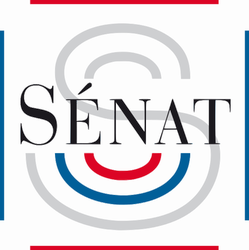The recent news
Oct. 27, 2022
Editorial responsibilities : Direction of the collection "Cours-Série Droit privé", Editions Dalloz (33)

► Référence complète : D. Fenouillet, Droit de la famille, Coll. "Cours Dalloz-Série Droit privé", Dalloz, 1ière éd., 1997, 5ième éd., 2022, 673 p.
____
► Ce manuel à jour des derniers textes s'adresse à tous les étudiants en droit et à tous les praticiens qui actualisent leurs connaissances en droit de la famille.
Il traite dans une première partie des « couples », (marié, démariés, hors mariage), pour consacrer sa deuxième partie à « l'enfant », (rattachement et statut).
Enfin, il finit par développer dans une dernière partie sur « la famille au-delà », (nom, obligation alimentaire et patrimoine de la famille).
____
Consulter l'ensemble de la collection dans laquelle l'ouvrage a été publié.
Oct. 26, 2022
Hearings by a Committee or Public organisation

🌐follow Marie-Anne Frison-Roche on LinkedIn
🌐subscribe to the Newsletter MAFR. Regulation, Compliance, Law
____
► Full Reference: M.-A. Frison-Roche, Audition as amica curiae by the Paris First Instance Civil Court, in summary proceedings, on the Compliance System and the place of the duty of vigilance in it, 26 October 2022
____
The hearing was held in the presence of two other amici curiae, also appointed by the Court: Professors Jean-Baptiste Racine and Bruno Deffains.
The hearing was requested by and on the initiative of the Paris First Instance Civil Court in connection with a dispute between associations and TotalEnergie, the former alleging breaches of due diligence by the latter, and the Court asking highly qualified individuals to shed light on the Compliance System and its implications.
_____
📝read the hearing report published on 27 October 2022 by Olivia Dufour (Actu-juridique)
📝read the article reporting on the hearing of 7 December 2022, representing the presentation of Compliance Law by MaFR, published on 7 December 2022 by Mathilde Golla (Les Echos)
📝read the article on the use of amicus curiae, starting with the use made in this case, published on 8 December 2022 by Nicolas Cayrol (Recueil Dalloz)
________
Oct. 21, 2022
Conferences

♾️ suivre Marie-Anne Frison-Roche sur LinkedIn
♾️s'abonner à la Newsletter MAFR Regulation, Compliance, Law
____
 ► Référence complète : M.-A. Frison-Roche, M.A., Droit de la compliance et l'entreprise, au cœur des transformations, in Enedis, Entretiens du Secrétariat général, 21 octobre 2022.
► Référence complète : M.-A. Frison-Roche, M.A., Droit de la compliance et l'entreprise, au cœur des transformations, in Enedis, Entretiens du Secrétariat général, 21 octobre 2022.
____
► Présentation générale de l'intervention : Cette intervention faite à l'initiative du Secrétariat général d'ENEDIS à destination des juristes de l'entreprise et des personnes ayant en charge des actions et d'accompagnement culturel de l'entreprise a eu pour but de montrer que la "Compliance" est souvent mal-perçue parce qu'elle est appréhendée par petits blocs, par exemple lois par lois, alors qu'elle correspond à un mouvement d'ensemble, très profond.
Ce mouvement d'ensemble très profond à la fois dépasse les entreprises et s'ancre dans les entreprises car c'est elles qui portent une conception de la société et du monde qui est moins centrée sur l'intérêt immédiat, le devoir de vigilance étant exemplaire de cela, le souci de l'être humain, de l'autre, maintenant et à l'avenir devenant un élément central de la stratégie même de l'entreprise.
Cela ne se fait pas en dehors du Droit : la loi Pacte et la "mission" que certaines entreprises endossent volontairement montrent des points de contact avec le Droit de la Compliance, notamment dans la dimension extraterritoriale de celui-ci. Le Droit de la Compliance, droit exprimant une ambition de nature politique et maniant des instruments juridiques de nature Ex Ante, est dans le prolongement du Droit de la Régulation, qu'il dépasse puisqu'il est délivré de la condition préalable de secteur, étant en cela la branche du Droit nouvelle et adéquate pour "réguler le numérique", espace qui n'est pas un secteur.
L'entreprise est alors au centre, avec une fusion entre le Droit dit "dur" et le Droit dit "souple", la normativité étant située dans les "Buts Monumentaux", vers lesquels l'entreprise tend, supervisée par les Autorités politiques et publiques. Les obligations de compliance sont d'une nouvelle nature, celles-ci revivifiant les devoirs et les pouvoirs pour que les entreprises, ancrées dans les territoires et la vie des personnes qui y vivent et y vivront, concrétisent ces buts, devant conserver la preuve des meilleurs efforts qu'elles font pour y parvenir.
Cette notion de "mission", si présente dans les "missions de service public", est désormais au cœur de la notion générale d'entreprise : elle est portée par le Droit de la Compliance, Droit qui a pour l'objet l'Avenir, dans une alliance entre les Autorités publiques et les opérateurs économiques cruciaux.
____
► Des pistes bibliographiques ⤵️
📕Les Buts Monumentaux de la Compliance
📕La Juridictionnalisation de la Compliance

Oct. 15, 2022
Publications

♾️ suivre Marie-Anne Frison-Roche sur LinkedIn
♾️ s'abonner à la Newsletter MAFR Regulation, Compliance, Law
____
► Référence complète : M.-A. Frison-Roche, Le juge, tiers régulateur des obligations contractuelles de compliance, document de travail, octobre 2022.
____
🎤 ce document de travail a été élaboré pour servir de base à une conférence, prononcée le 18 novembre 2022 à l'Université de Nîmes.
____
📝Il sert aussi de base pour un article qui sera publié dans un ouvrage, publié dans sa version française dans l'ouvrage 📕L'obligation de Compliance, dans la collection 📚Régulations & Compliance et dans sa version anglaise dans l'ouvrage 📘Compliance Obligation, dans la collection 📚Compliance & Regulation
____
► Résumé du document de travail :
____
🔓Lire les développements ci-dessous ⤵️
Oct. 12, 2022
Conferences

♾️ follow Marie-Anne Frison-Roche on LinkedIn
♾️subscribe to the Newsletter MAFR Regulation, Compliance, Law
____
 ► Full Reference: Frison-Roche, M.A., La compliance en entreprise : aspects théoriques et pratiques, in 118ième Congrès des Notaires, L'ingénierie notariale, Marseilles, October 12, 2022.
► Full Reference: Frison-Roche, M.A., La compliance en entreprise : aspects théoriques et pratiques, in 118ième Congrès des Notaires, L'ingénierie notariale, Marseilles, October 12, 2022.
This Masterclass is given in French.
____
► English Presentation of this Masterclass: This two-hour Masterclass aims to introduce, regarding the role of the Notary in companies and vis-à-vis them, Compliance Law.
This discover of Compliance Law is built on a description of the new Compliance techniques of which companies are the object or the source (I) then, faced with such a mass of new standards, because this is incomprehensible and uncontrollable if these so many regulations are not "conceived", explain what can give meaning to this Compliance Law, namely the "Monumental Goals" which animate it and give it meaning (II). Like the Regulation Law that Compliance prolongs, Compliance Law is a teleological branch of law that requires that the application and interpretation of norms be done by these Monumental Goals.
____
This Masterclass is given in French: see some technical references in English ⤵️
Oct. 5, 2022
Interviews

🌐suivre Marie-Anne Frison-Roche sur LinkedIn
🌐s'abonner à la Newsletter MAFR Regulation, Compliance, Law
____
► Référence complète : M.-A. Frison-Roche, " Youporn : Le Droit doit se renouveler face à la transformation du monde par l'espace numérique", entretien avec Olivia Dufour, Actu-juridique, 5 octobre 2022.
___
💬Lire l'entretien dans son intégralité
____
Lire l'entretien précédent : 💬L'efficacité de la Compliance illustrée par l'affaire Youporn
____
► Présentation de l'entretien par le journal : "Comment parvenir à bloquer efficacement l’accès des mineurs aux contenus pornographiques sur internet ? C’est à cette difficile question que s’est attaquée l'Arcom (Autorité de régulation de la communication audiovisuelle et numérique). Avec pour l’instant un succès mitigé. Début septembre, alors que le régulateur demandait au juge de bloquer les cinq sites n’ayant pas obéi à son injonction de modifier leurs conditions d’accès, la justice a décidé de renvoyer le dossier devant un médiateur. Entre temps, un rapport sénatorial publié le 28 septembre souligne l’urgence d’agir. Nous avons demandé au professeur Marie-Anne Frison-Roche, spécialiste de droit de la compliance, comment à son avis il est possible de lutter efficacement contre les dérives de l’industrie pornographique".
____
► Questions posées :
- Dans l'affaire Youporn, la décision du tribunal judiciaire de renvoyer le dossier vers la médiation a suscité un certain émoi. N'est-ce pas le signe d'une forme de renoncement de la justice, avec tout ce que cela implique d'un point de vue symbolique ?
- En quoi le droit de la compliance serait-il plus efficace que les méthodes traditionnelles ?
- Mais n’est-ce pas, d’une certaine façon leur permettre de s’autoréguler, solution que précisément le rapport sénatorial écarte radicalement, estimant qu’elle n’est pas efficace ?
- Le problème, à en croire les sites concernés, c’est qu’il n’y aurait pas de solution qui soit à la fois efficace et respectueuse de la protection de la vie privée…
- Pensez-vous que la compliance ait une chance de réussir là où les outils plus traditionnels connaissent un échec relatif ?
________
Sept. 27, 2022
Hearings by a Committee or Public organisation

🌐suivre Marie-Anne Frison-Roche sur LinkedIn
🌐s'abonner à la Newsletter MAFR Regulation, Compliance, Law
____
► Référence complète : M.-A. Frison-Roche, audition par la Commission des Lois du Sénat sur la Proposition de Loi constitutionnelle relative à l'interruption volontaire de grossesse et à la contraception, 27 septembre 2022.
____
► Lire le dossier législatif, notamment l'exposé des motifs de la proposition de loi.
____
►Résumé de la présentation avant la discussion : ma contribution à la discussion nourrie et très large établie entre les représentants du Sénat et les administratrices et mes collègues, Elisabeth Zoller, Stéphane Mouton et Sophie Paricard, a plutôt consisté à développer la dimension concrète et pratique du sujet et la considération que celle-ci a sur la rédaction d'un texte, s'il venait à l'idée du Législateur de s'en saisir.
En effet, il s'agit non pas tant d'établir un droit subjectif, dont la dimension constitutionnelle en tant que telle peut poser techniquement problème, mais d'assurer son effectivité. Ce terme-même d'effectivité est utilisé par la proposition de loi. Or, la notion d'effectivité est utilisée dans le Droit économique, qui vise les buts, le Droit de la Régulation et de la Compliance visant à obtenir dans une sorte de réussite croissante l'effectivité, l'efficacité et l'efficience des mécanismes juridiques. Mais ce souci de politique publique est difficile à intégrer dans le système juridique, et ce que fait le Droit de la Régulation et de la Compliance est difficile à concevoir au niveau constitutionnel, la notion d' "accès à un droit" étant sans doute un pléonasme par rapport à la notion de "droit à l'effectivité", lequel vise sans doute les différents sujets de droit qui, dans la chaîne concrète qui jalonne la façon dont une femme dispose de son corps, deviendrait débiteurs d'un tel "droit d'accès à un droit".
Une telle notion peut engendrer de nombreux contentieux car les potentiels débiteurs d'un tel droit subjectif, qui aurait valeur constitutionnelle, ont aussi des droits subjectifs à opposer, et c'est une grande agressivité juridictionnelle des uns et des autres, des uns contre les autres, qui peut être ainsi engendrée.
D'ailleurs, placer dans la Constitution un tel droit subjectif sous "De l'autorité judiciaire" est inapproprié car le droit à l'avortement est protégé également par le juge administratif, non seulement à travers le contrôle objectif des textes mais encore à travers le contentieux subjectif, les établissements publics étant fortement impliqués dans sa mise en oeuvre.
En outre, de la même façon que l'arrêt Dobbs v. Jackson est un arrêt systémique, visant le fédéralisme, qui en application de la conception par la Cour de celui-ci peut et va priver d'autres droits subjectifs de leur protection constitutionnelle fédérale, le premier à tomber étant sans doute le droit des personnes de même sexe à se marier, mais d'autres peuvent venir, le Constituant français devrait d'ores et déjà (puisqu'il vise l'avenir) soit :
- viser une catégorie plus abstraite de droits subjectifs que le droit à l'avortement, en visant une catégorie . Mais comment délimiter cette catégorie ? comment le dire ?
- soit partir dans le système de liste (ce qui explique l'insertion dans l'article 16, qui met ce droit spécifique à l'avortement parmi une liste d'autres droits, et suppose donc qu'à chaque fois l'on prenne une autre loi pour mettre les autres ...
Cela suppose alors que le Législateur intervenir par à-coup, dans une liste que le juge aura bien du mal à interpréter, sans doute une "liste fermée"..., mais surtout intervienne en Ex-Post, à chaque fois qu'il pense qu'une agression est davantage probable sur un droit que sur un autre (car c'est le raisonnement ici suivi, l'arrêt Dobbs, qui ne concerne pas l'Europe, étant considéré par le Législateur français comme un "signal" de danger sur ce droit-là...) : mais le Législateur d'une part doit intervenir sur l'avenir et non pas sur le passé (les lois "en réaction" ne sont pas de bonne méthode) et doit être abstraites car c'est au juge de décliner sur des situations et droits particuliers (cf. Carbonnier et "l'effet macédonier"). Or, le Conseil constitutionnel n'est pas placé pour faire cela. Quel juge en France pourrait le faire ?
Malgré la bonne intention du Législateur, et en retournant les techniques juridiques dans tous les sens, l'on ne voit pas "quoi faire"...
Mais, puisque l'enjeu n'est pas tant l'existence d'un droit, mais l'effectivité de celui-ci, et l'efficacité d'un système médical et social à le servir dans la "réalité" des choses, pourquoi ne pas se tourner vers le Droit économique, Droit concret et téléologique par excellence ?
Dès lors, si le Législateur devait intervenir pour protéger davantage à l'avenir l'effectivité du droit des femmes à disposer de leur corps, c'est peut-être sous une forme plus incitative, en s'appuyant sur les entreprises qui, comme l'ont fait les entreprises américaines en aidant les femmes à voyager jusqu'aux Etats protecteurs, en ne communiquant pas des informations aux autorités publiques des Etats non-protecteurs, aident concrètement à l'effectivité des droits subjectifs qui sont concrètement menacés, maintenant aux Etats-Unis, éventuellement demain en Europe et en France.
Cela s'appuie sur le Droit de la Compliance.
____
Voir aussi
💬Frison-Roche, M.-A, "La Cour suprême a déclenché la bombe de la sécession. Que faire ?", 5 juillet 2022
💬Frison-Roche, M.-A, Droit à l’avortement : « Le processus de sécession est dans la décision », 27 juin 2022
📧M.-A. Frison-Roche, Seuls les droits subjectifs techniques ne sont pas touchés par l'arrêt Dobbs: c'est sur eux qu'il faut construire une nouvelle théorie de l'entreprise, 29 juin 2022
Sept. 25, 2022
Publications
🌐 suivre Marie-Anne Frison-Roche sur LinkedIn
🌐 s'abonner à la Newsletter MAFR Regulation, Compliance, Law
____
► Référence complète : M.-A. Frison-Roche, "Fonder la compliance", in Revue de l'ACE, La compliance, n° spéc. n°157, septembre 2022, p.17-31.
____
► Résumé de l'article : L'article traite le sujet en 20 étapes
- Pourquoi fonder les pratiques de compliance ? Pour des impératif pratiques
- Fonder les pratiques de compliance pour rendre supportables, car compréhensibles, les pouvoirs et les charges concentrés dans les outils de Compliance
- Fonder les pratiques de compliance pour maîtriser un savoir technique exponentiel
- Fonder les pratiques pour y trouver la part du Droit
- Fonder la Compliance sur les process d’efficacité
- Rendre supportable la Compliance fondée sur les process d’efficacité par un mix de procédure et d’éthique
- Les professionnels de la Compliance fondée sur des process
- La place particulière de l’avocat et du juge dans la Compliance fondée sur des process
- Fonder la Compliance sur l’obligation de donner à voir par avance que l’on se conforme à la réglementation applicable
- L’aporie de la Compliance fondée sur l’obligation de donner à voir par avance que l’on se conforme à la réglementation applicable
- Les charges engendrées de la Compliance fondée sur l’obligation de donner à voir par avance que l’on se conforme à la réglementation applicable
- L’impraticabilité de la Compliance fondée sur l’obligation de donner à voir par avance que l’on se conforme à la réglementation applicable
- Fonder la Compliance sur des buts substantiels ponctuels
- Les professionnels de la Compliance impliquées par la Compliance fondée sur des buts substantiels ponctuels
- Fonder la Compliance par des buts substantiels globaux et à venir
- Fonder la Compliance par les Buts Monumentaux, négatifs et positifs
- Les professionnels de la Compliance fondée sur les Buts Monumentaux
- La place particulière de la population concernée et de l'Etat dans la Compliance fondée sur les Buts Monumentaux
- La place particulière de l’avocat et du juge dans la Compliance fondée sur les Buts Monumentaux
- L'avenir du Droit de l'Avenir
____
____
____
lire la revue dans son intégralité
_________